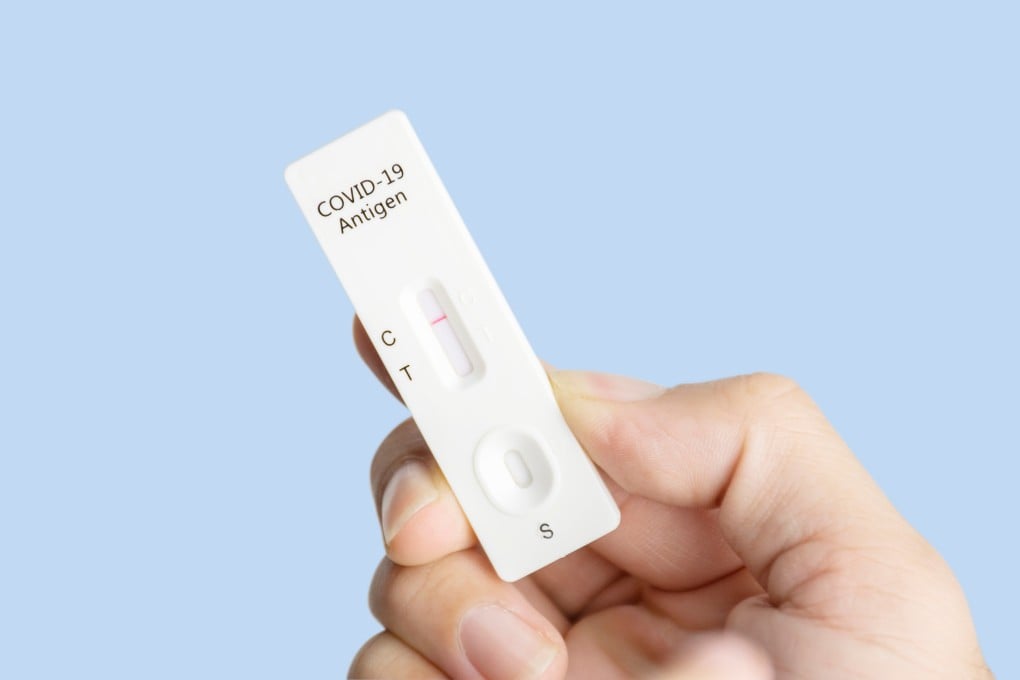Coronavirus: Hong Kong Consumer Council rolls out search tool to check if rapid antigen test kits have been approved by authorities
- Council received 48 complaints about home-testing kits between January 14 and March 8
- Search tool to allow consumers to see which brands have been approved by local authorities, mainland China, the European Commission or the United States

Whether a rapid test yields “one line” or “two lines” has become the talk of the town, as residents constantly worry about getting a positive test result.
But the Consumer Council received a total of 48 complaints about RAT kits between January 14 and March 8, of which 19 were related to late or non-delivery of goods, 13 to certification issues, while the rest concerned sale practices, expiry dates and spurious goods.
Council chief executive Gilly Wong Fung-han said the prices of the kits mentioned in the complaints varied from HK$18 (US$2) to HK$120, with 37 cases involving purchases made online and 11 bought in-person.

“An abundance of RAT brands from different places are available on the market and online,” she said. “People may wonder which ones have international accreditation and are more accurate, with a lower chance of getting a ‘false negative’ or ‘false positive’.